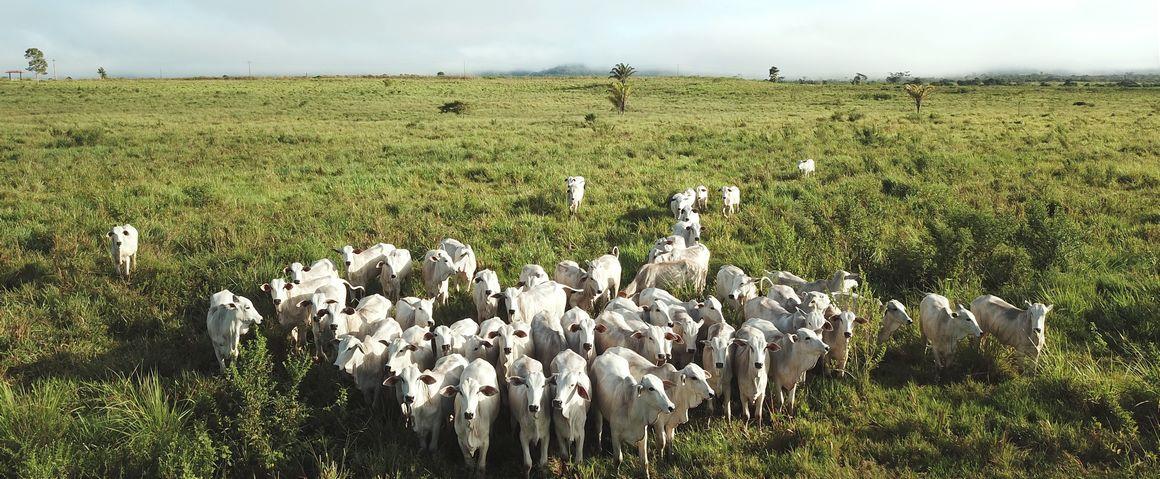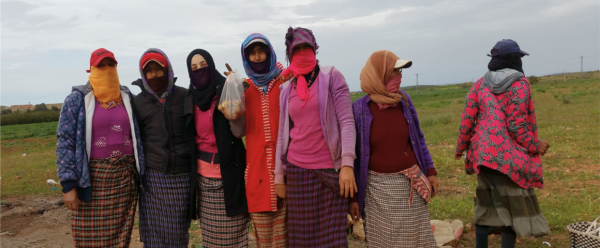Just out 30 January 2026
- Home
- CIRAD news
- News
- Policy brief: policy on agricultural adaptation to climate change
Climate | Five key messages for effective agricultural adaptation policies

Cattle herd in Paragominas, Brazil © R. Poccard Chapuis, CIRAD
How can effective policy instruments to adapt agriculture to climate change be implemented? CIRAD has published a set of recommendations in a policy brief: "Tackle climate change: recommendations for agricultural adaptation policies of tomorrow".
Adapting the agricultural sector to climate change calls for five key measures: assessing the true performance of climate policy instruments; implementing sectoral policy instruments; promoting incentive, communicative and regulatory instruments; improving implementation of existing instruments; and promoting national "jurisdictional adaptation" as an assessment of climate adaptation at global level.
Agriculture accounts for 25% of global greenhouse gas emissions, but according to the IPCC, it has the potential to slash its emissions by 75%!
"Agriculture accounts for around 25% of global greenhouse gas emissions, if you include deforestation", says Marie Hrabanski, political science researcher at CIRAD and co-author of the policy brief. "But according to the IPCC, it has the potential to slash its emissions by 75%, and urgent action is needed." While public policies have been rolled out since the 1990s, the authors stress the need to look at how they are implemented is they are to address climate issues. Their analysis compared the instruments rolled out in territories in both North and South, to determine the conditions for their success. The case studies were drawn from three research projects: Typoclim, Artimix and Tackling CC.
The article contains five key messages for policymakers, two of which run counter to what is generally advocated on a global level.
Assessing climate policies
The performance of policy instruments must be measured on the ground. Governance issues or the dilution of policymakers' capacity to act may limit the efficacy of action plans. It is important to ensure the effective dissemination of objectives, their appropriation by targets, and concrete implementation of instruments in territories and/or cultivable plots.
Policies are more effective if the agricultural sector alone is responsible for their implementation
On a global level, it is generally accepted that climate issues must be managed by means of cross-sectoral governance. In other words, agricultural issues must be addressed in combination with other sectors such as water, urban areas, energy, etc. However, according to Marie Hrabanski, "instruments for adapting agriculture to climate change are more effective if implemented by the agricultural sector. We think this is because the agricultural sector often has better territorial coverage and is more structured than other sectors".
These factors facilitate more rapid innovation, to implement instruments for adapting agriculture to climate change. For instance, in the eleven territories considered, three quarters of current instruments are being implemented by players in the agricultural sector, such as the Climate Smart Agriculture platform in Senegal. The platform coordinates national and local players, to ensure the integration of climate policy in agricultural policies and projects, notably by means of departmental platforms.
"But this does not mean that non-agricultural players should not be involved in public policy building", Marie Hrabanski adds.
Combining incentive, communicative and regulatory approaches
The authors stress the importance of rehabilitating command-and-control regulatory instruments. This runs counter to current trends, but they feel that such regulatory instruments, combined with incentives and communicative instruments, guarantee effective implementation of climate adaptation policies.
Hybrid instruments already exist, such as EU agri-environment-climate measures, which provide financial support to farmers provided they adopt more environmentally friendly practices.
Focusing on existing instruments
There is no point developing a range of climate plans: in Colombia, climate policies have blossomed in recent years, but their implementation is lagging. "On the contrary, we would recommend institutional and instrumental restraint", Marie Hrabanski stresses. The priority is to improve implementation of the sectoral instruments judged to be the most effective, politically, economically, and in terms of climate change mitigation.
Drawing upon local disputes to draft international legislation
The authors pinpoint the need to promote national "jurisdictional adaptation" as an efficient assessment of climate adaptation policies on a global scale. According to the study, local climate litigation serves to improve international climate law, innovate in terms of transnational disputes, and develop a preventive approach in terms of liability.
For the authors of the policy brief, respecting these priority messages will ensure the successful implementation of public policy in favour of climate adaptation within farming systems worldwide.
Agricultural activities should be an ideal topic for UN Climate Summits, since they are at once a villain and a victim, and a possible solution. Despite this, there were no official talks about them in Glasgow.
It took the launch of the Koronivia joint work in 2017, at COP23, to bring agricultural and food issues into global climate talks. After five years, the work was due to be wound up this year in Glasgow. However, the Parties opted to postpone its completion by a year, to allow technical progress on the issue while postponing the inherent policy and geostrategy talks. The issues surrounding farming and food systems should thus be on the agenda at the next COP, in Sharm el-Sheikh in 2022.



























